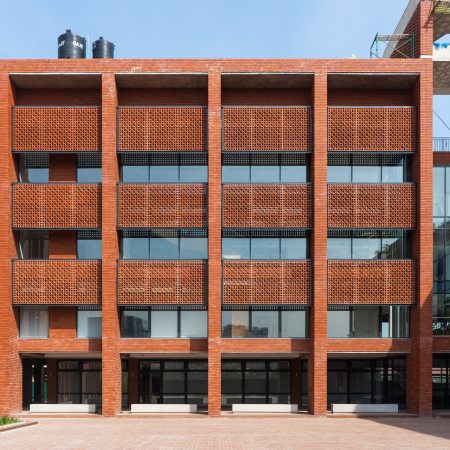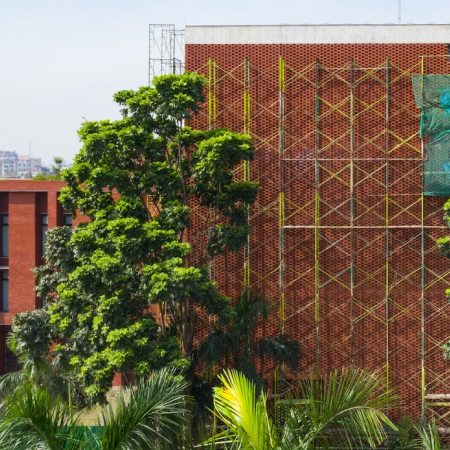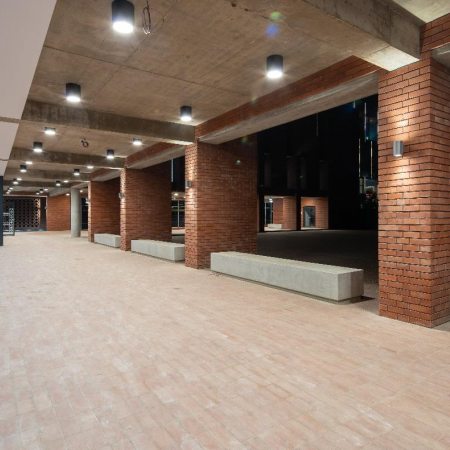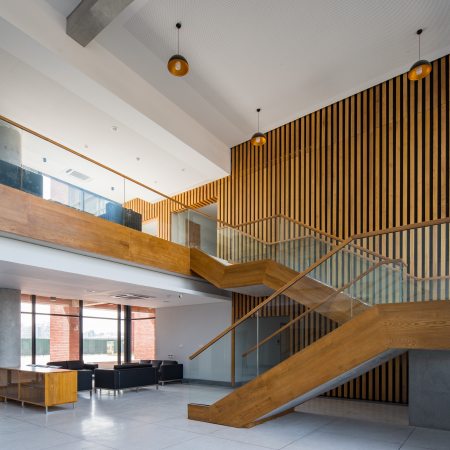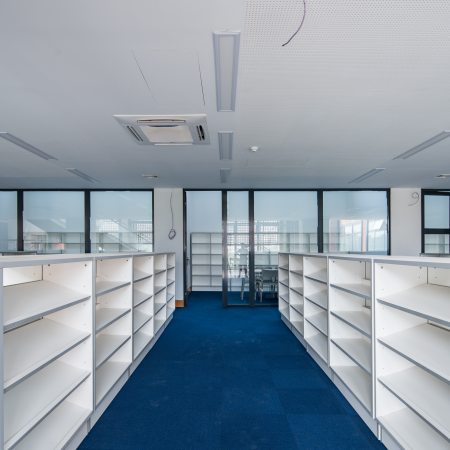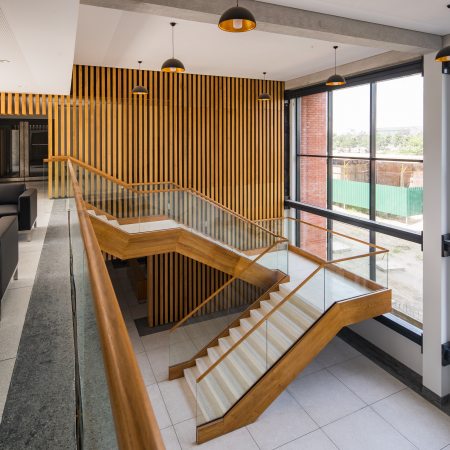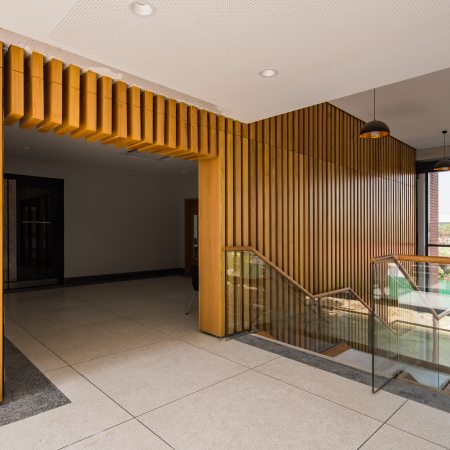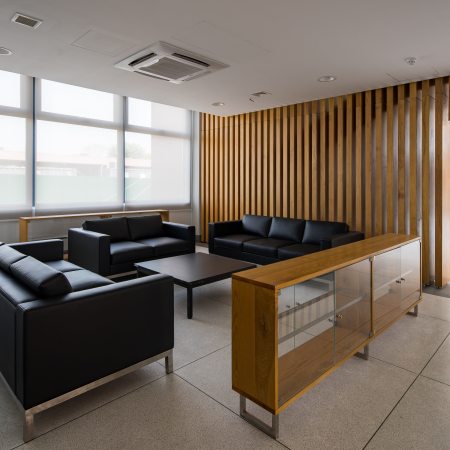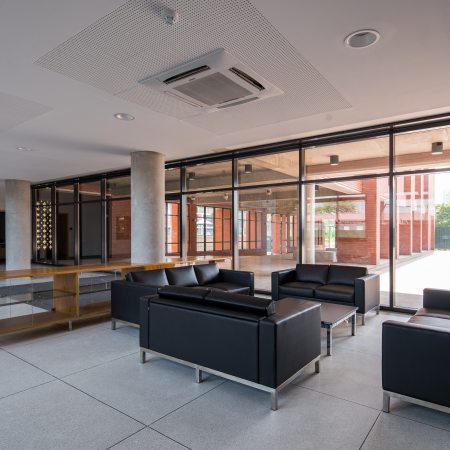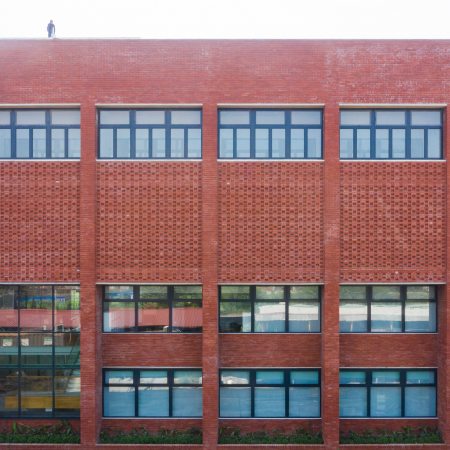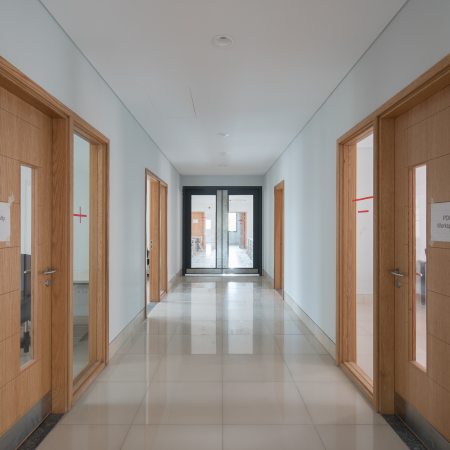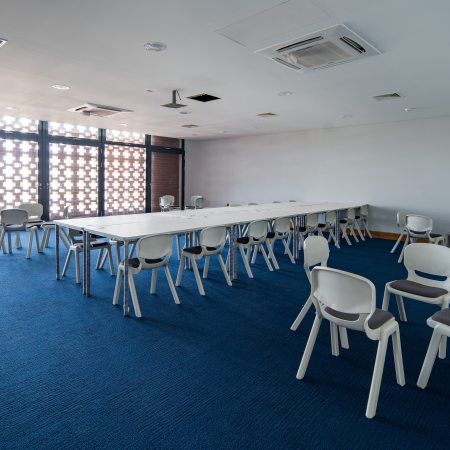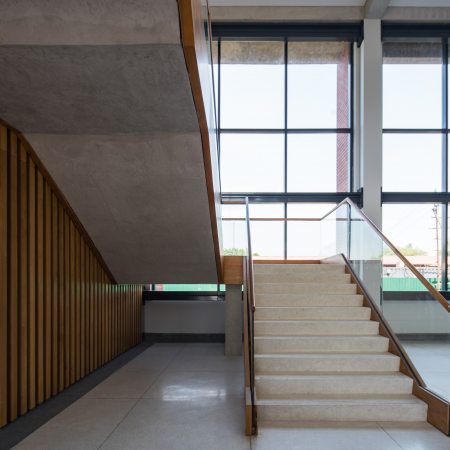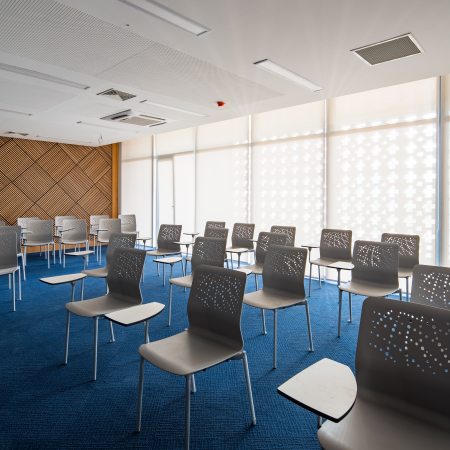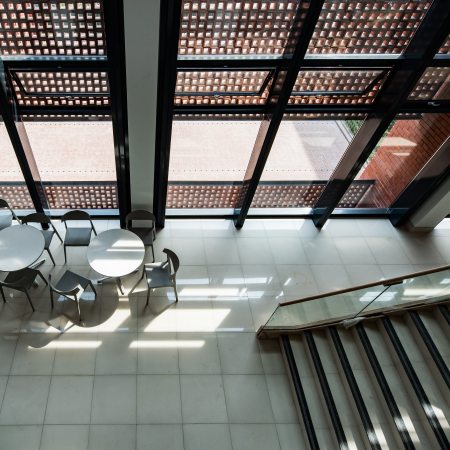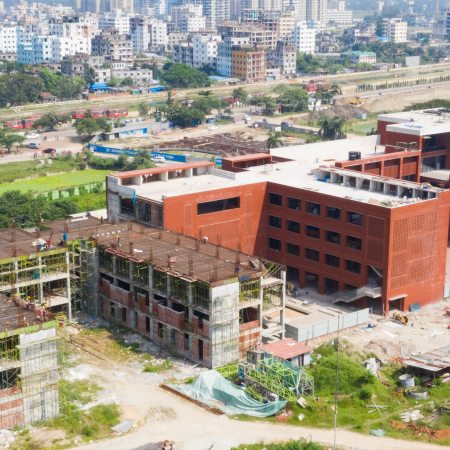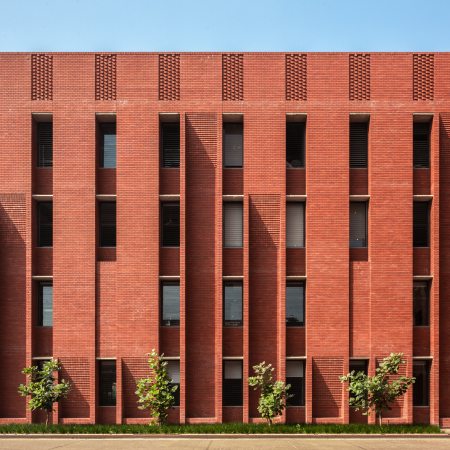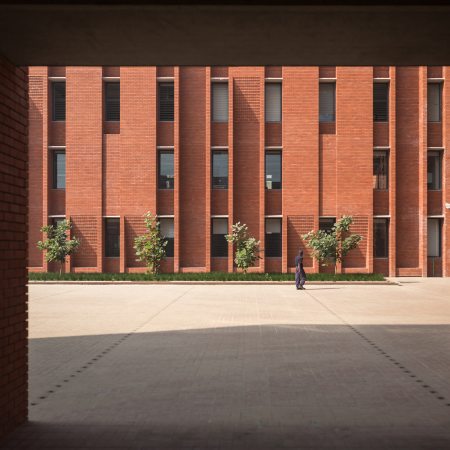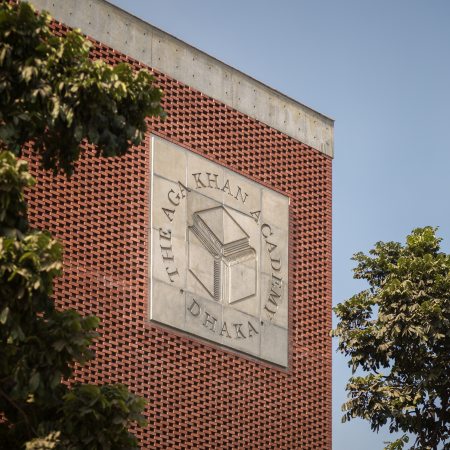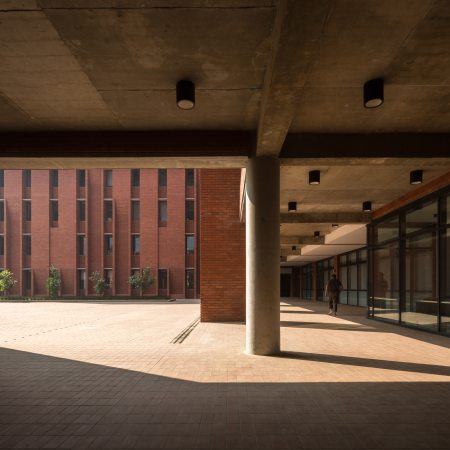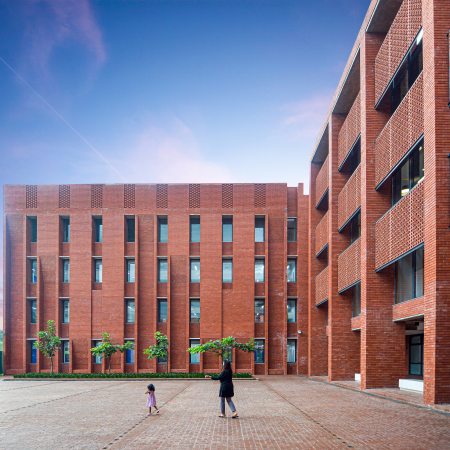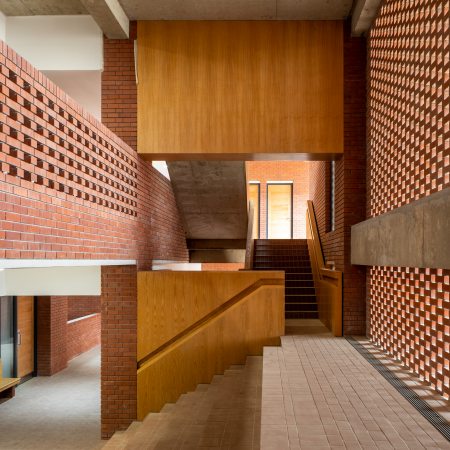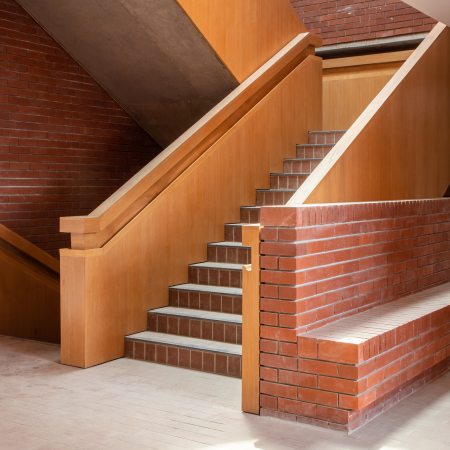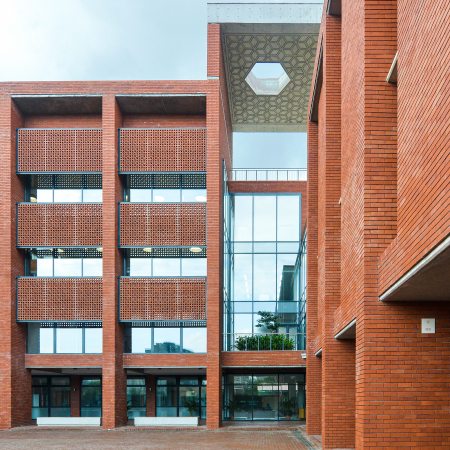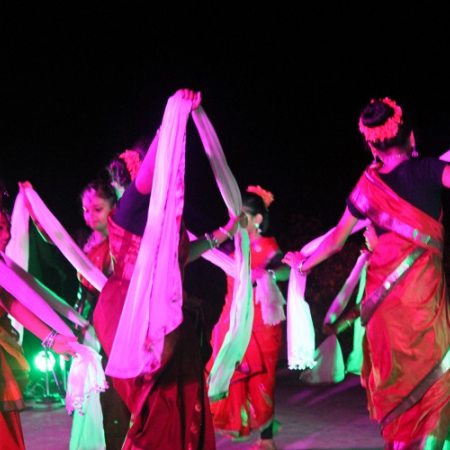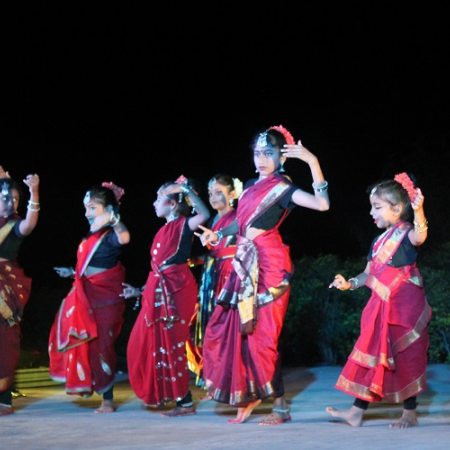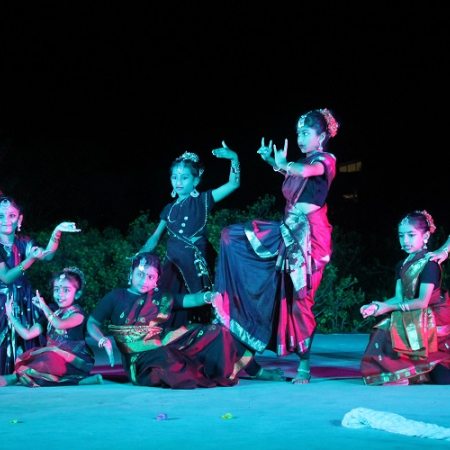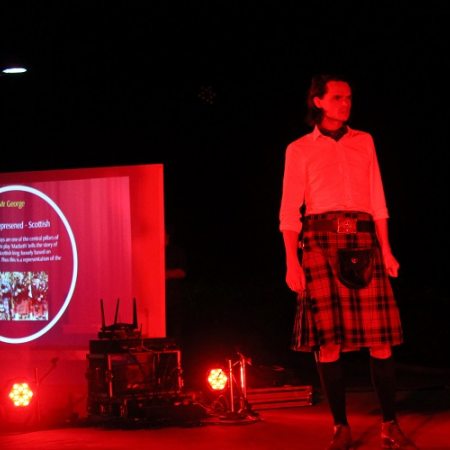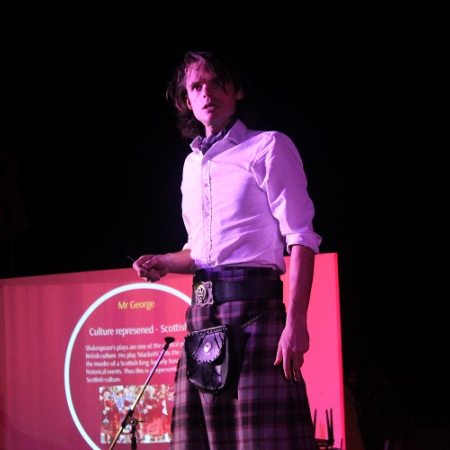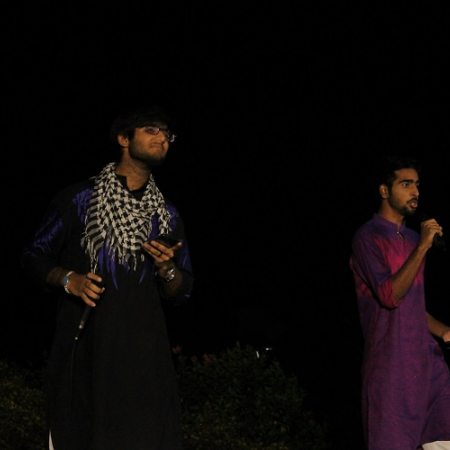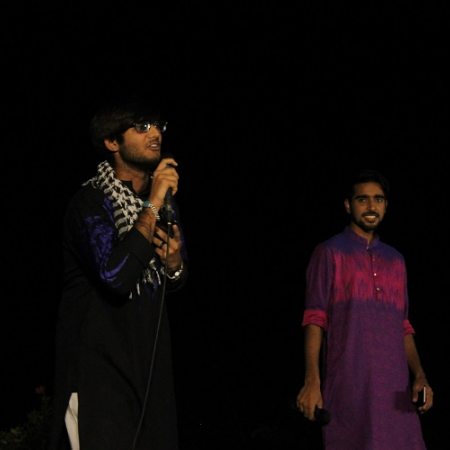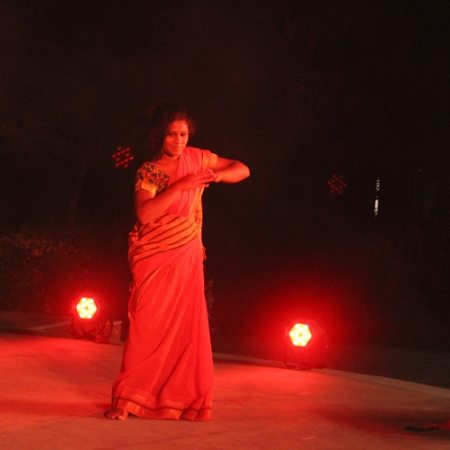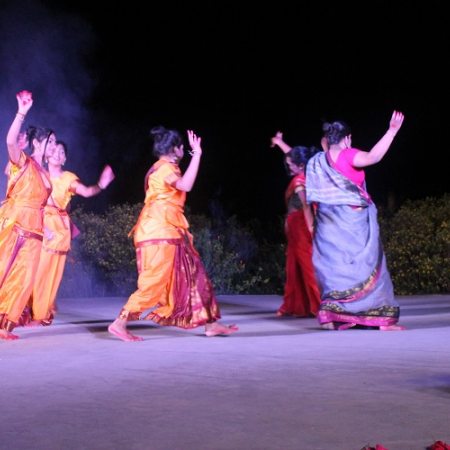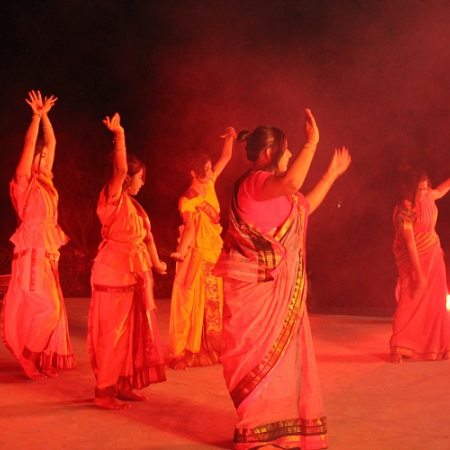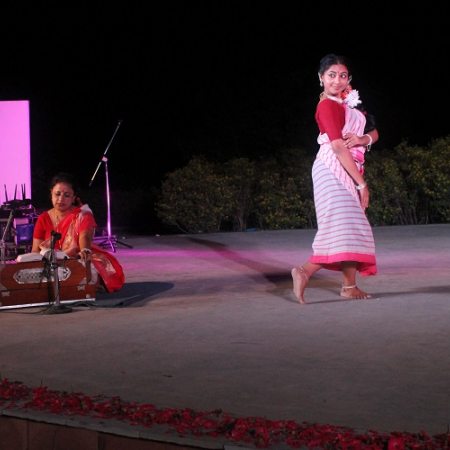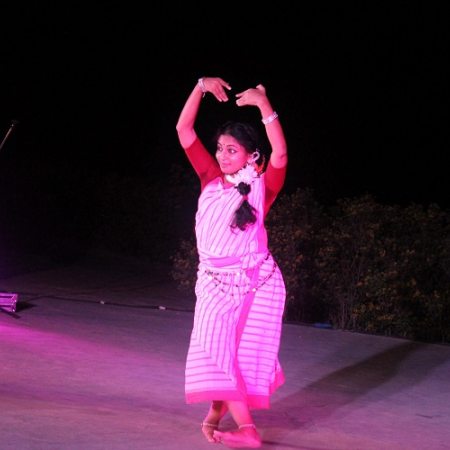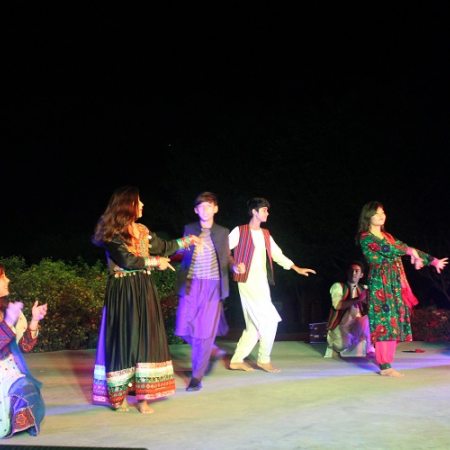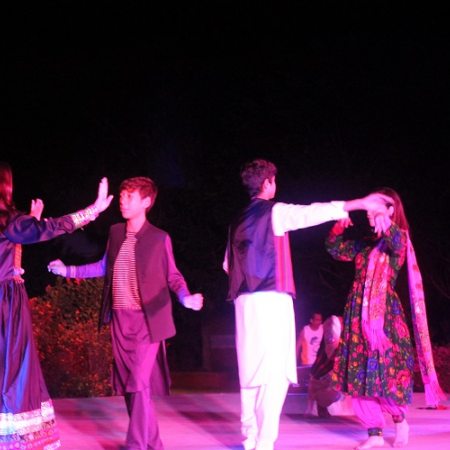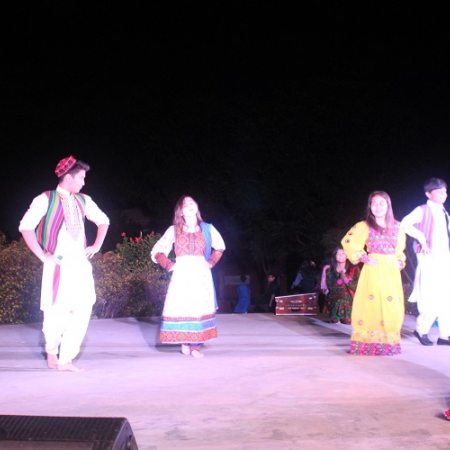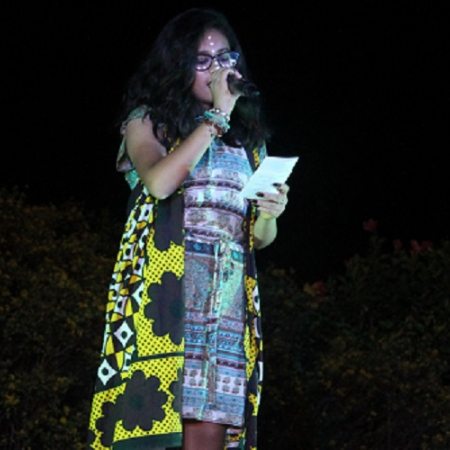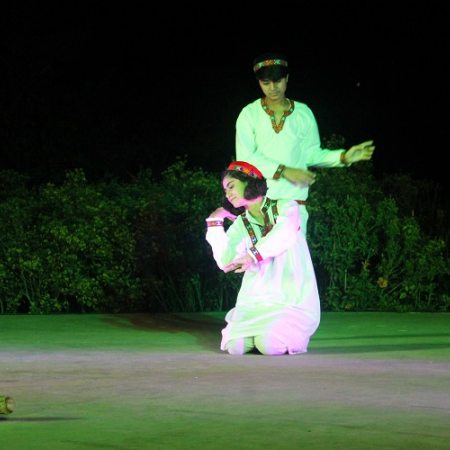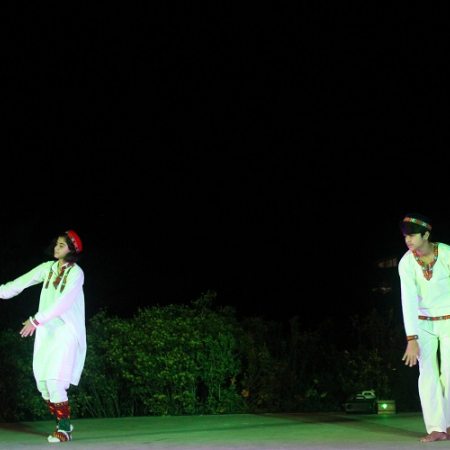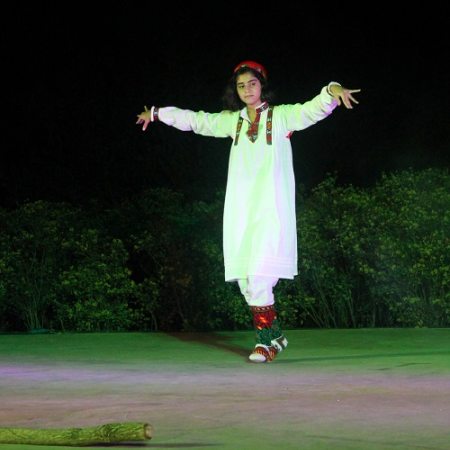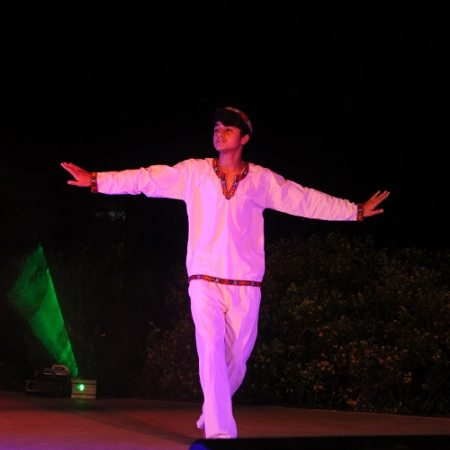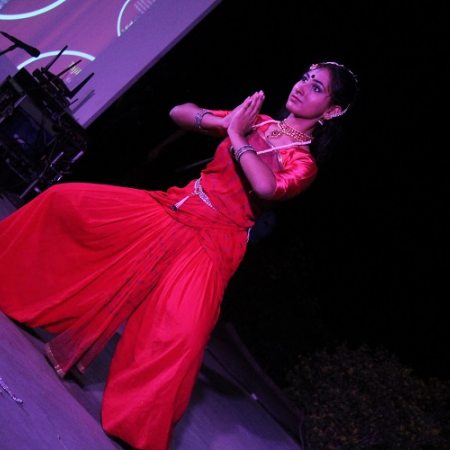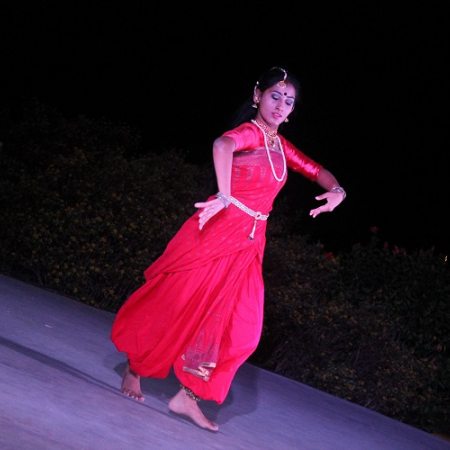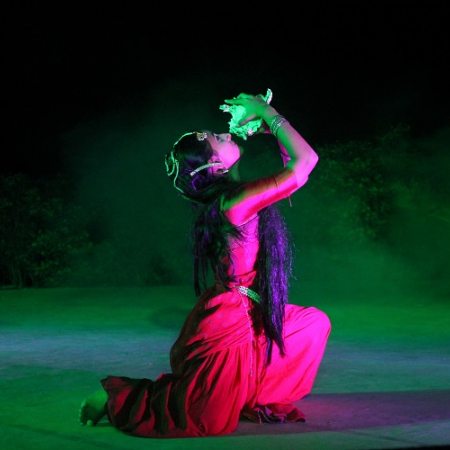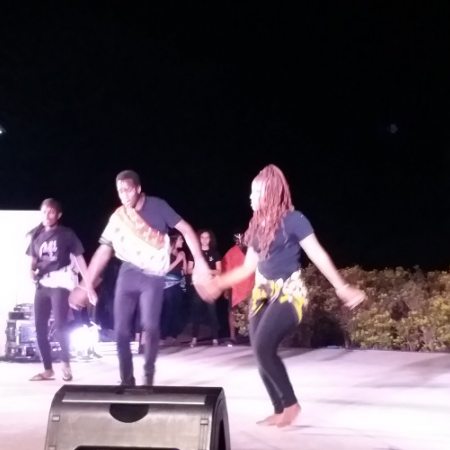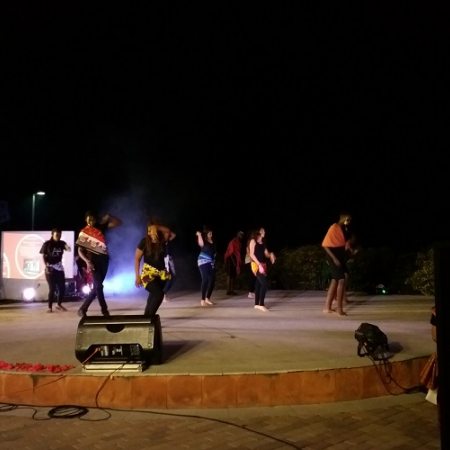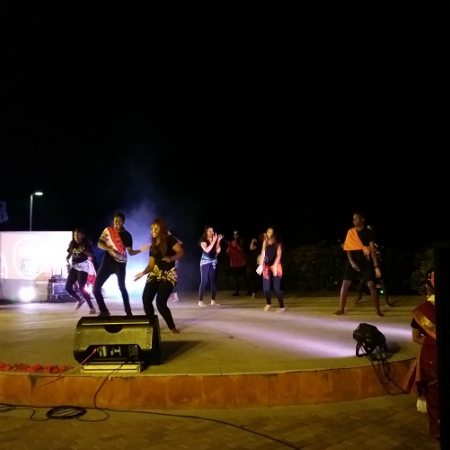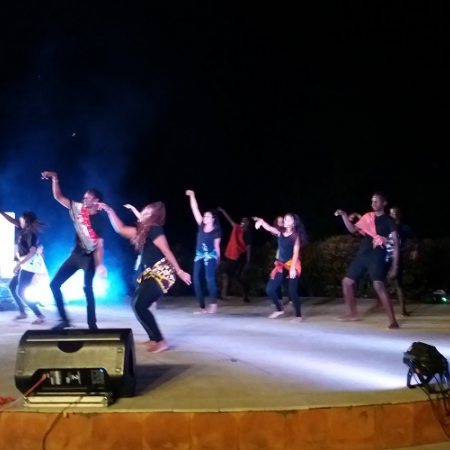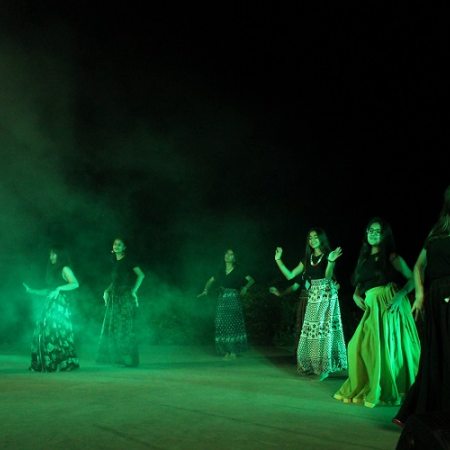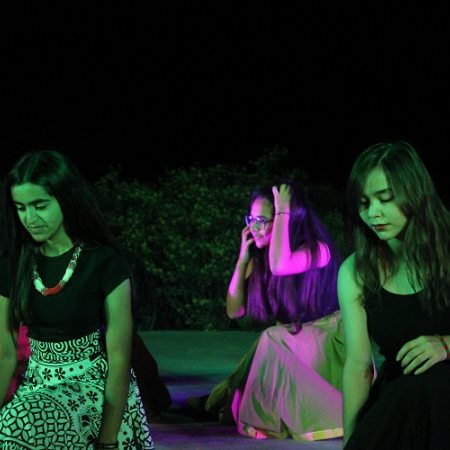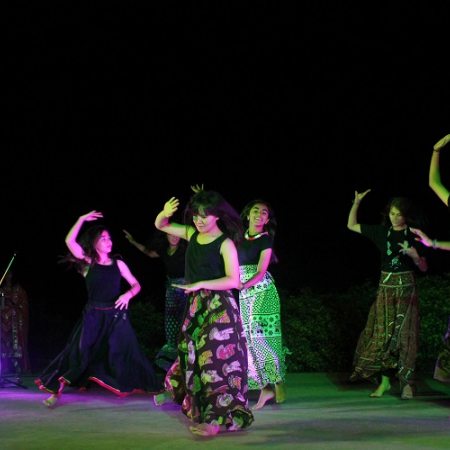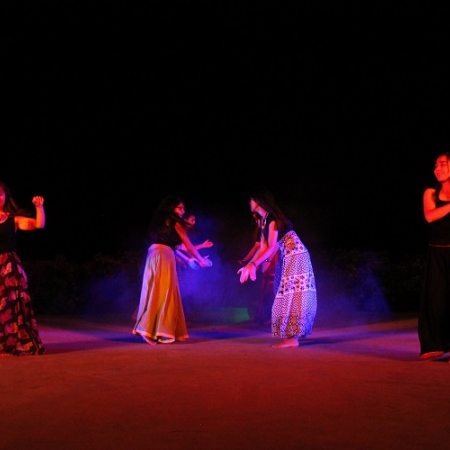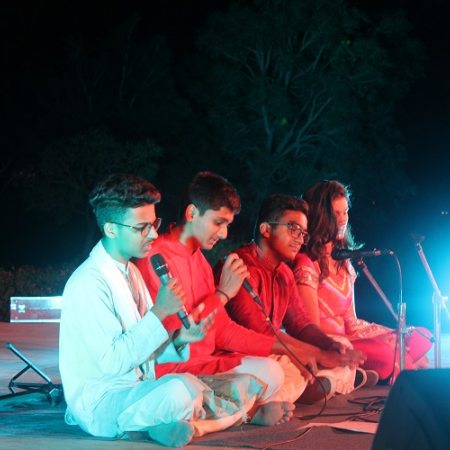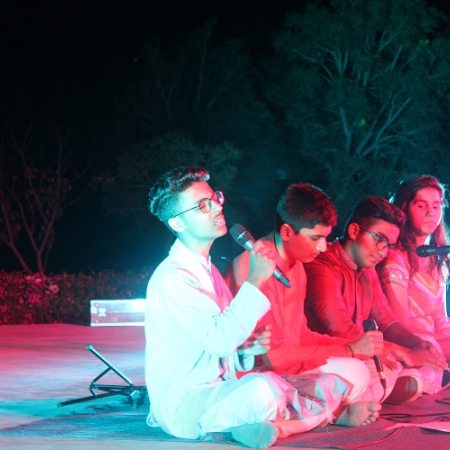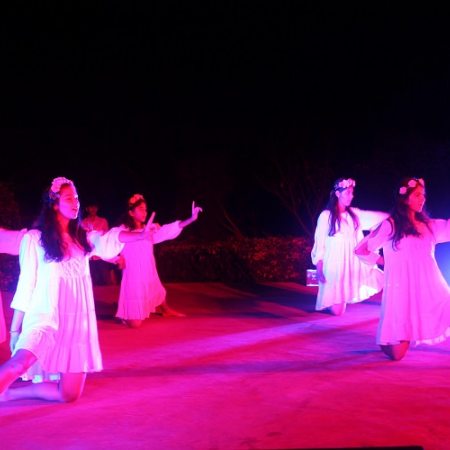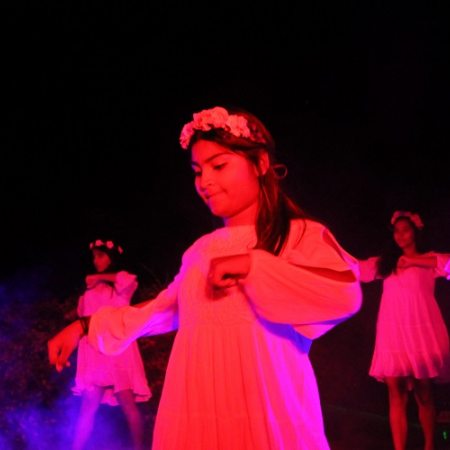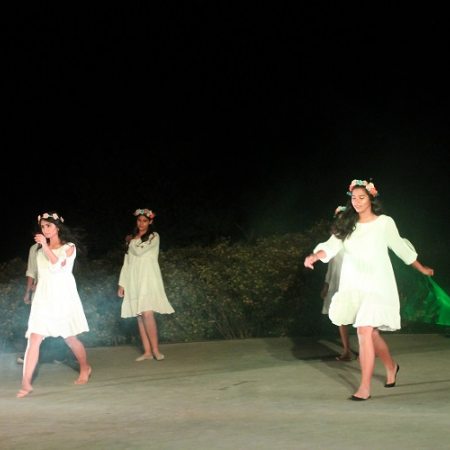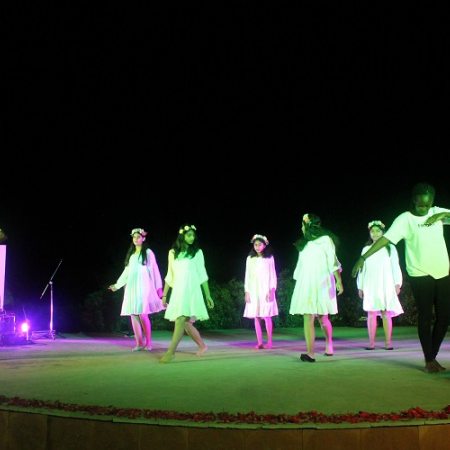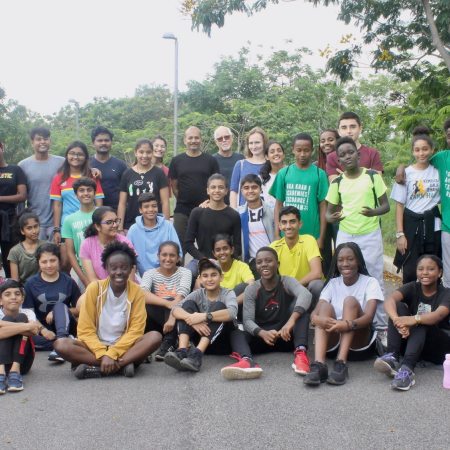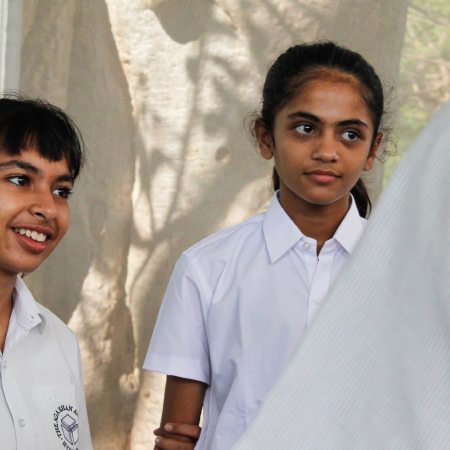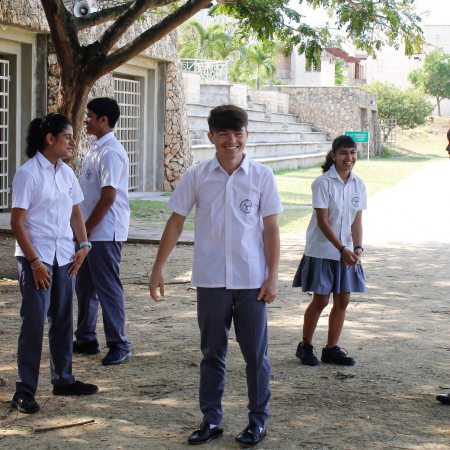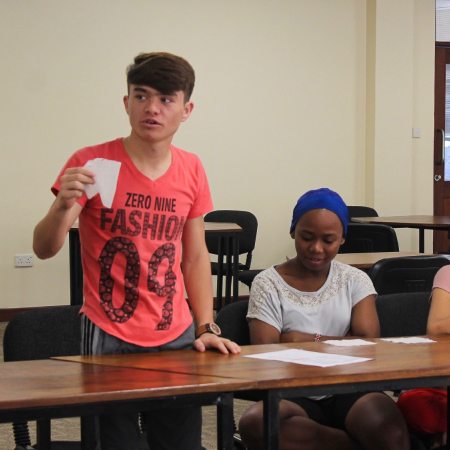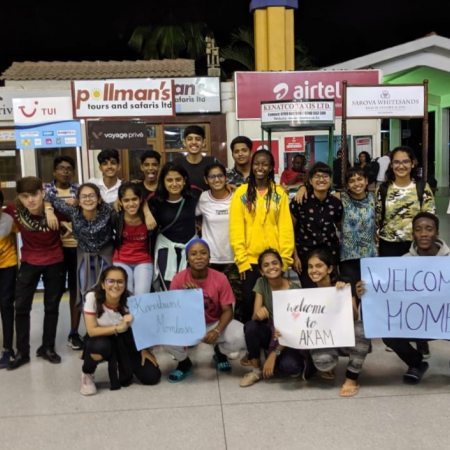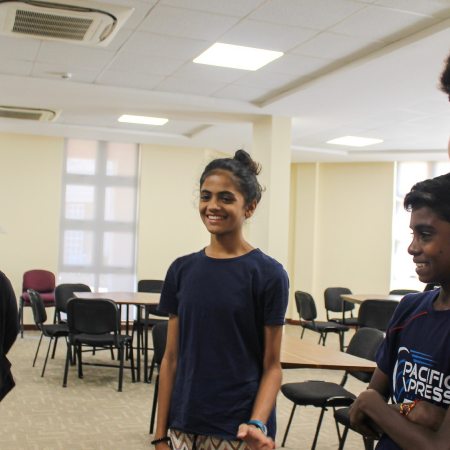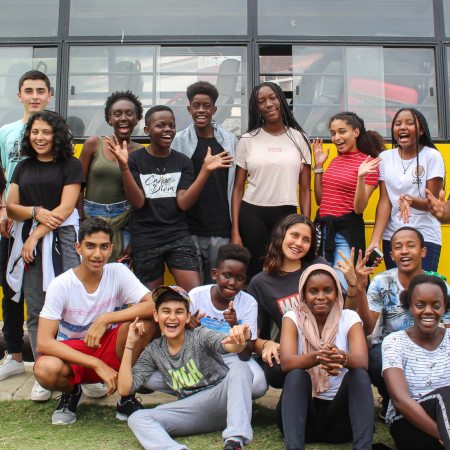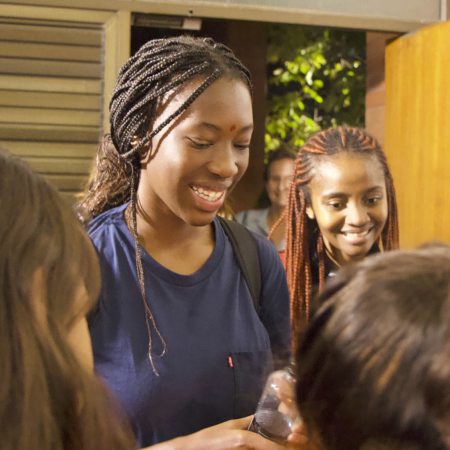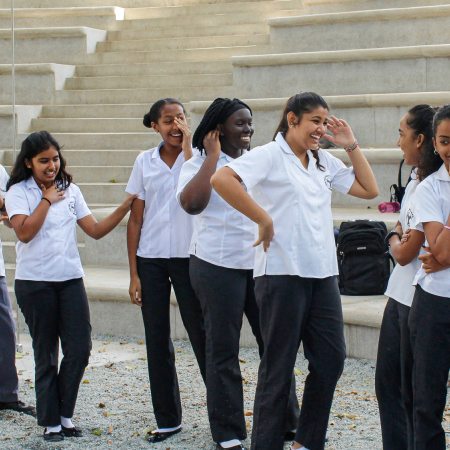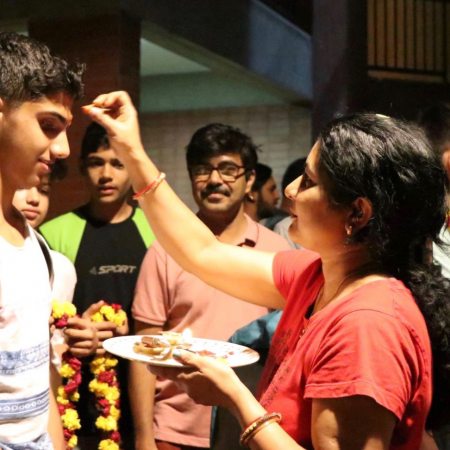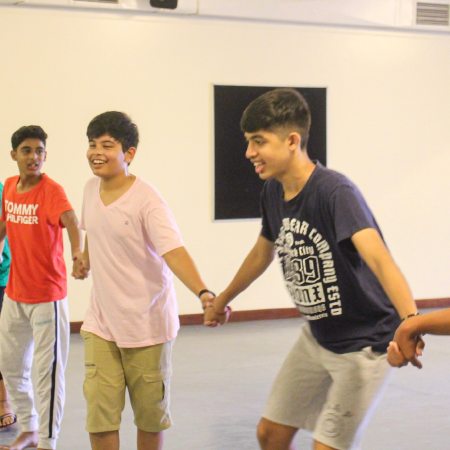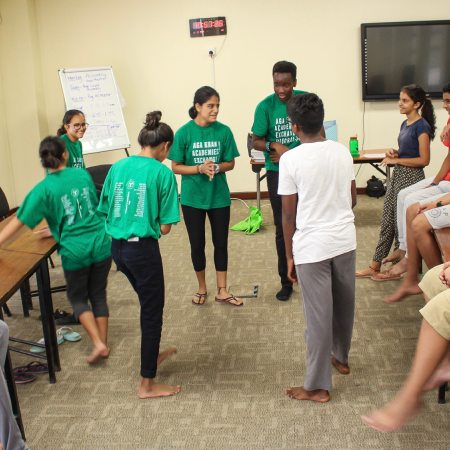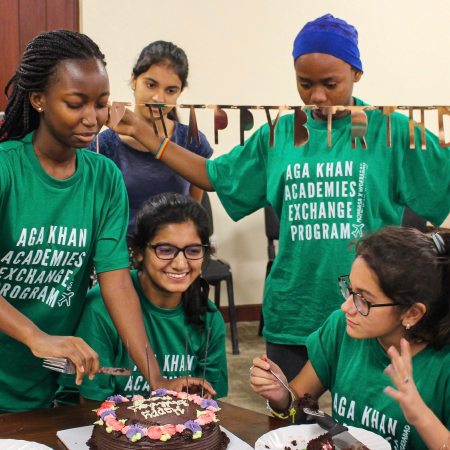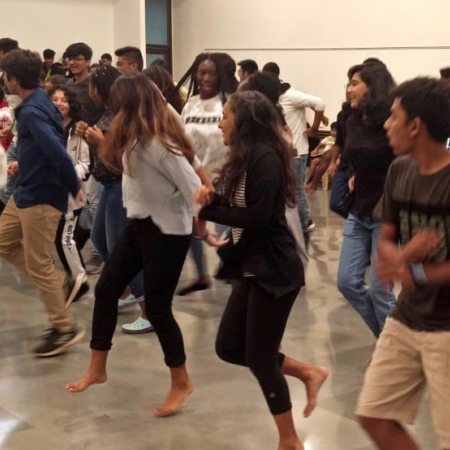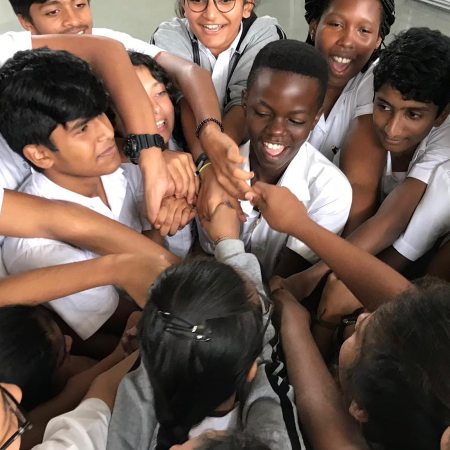AKA Maputo Construction Diary January 2019
See the latest progess at the Aga Khan Academy Maputo campus, including our new residential blocks, which will be opening in April.
Aga Khan Academy Dhaka Construction Diary
Our construction team has been working diligently on the Aga Khan Academy Dhaka for the past month and we're eager to share some progress updates with you! The Maidan is all set as the grass work has been completed, and the concrete blocks on the covered walkway of the Maidan have been placed. Finishing touches are currently being applied to the pavement on the east side of the Academy and the north side of the boundary wall. In addition, the team has been working on the central courtyard, entry and exit points for school buses and private vehicles, the northeast guard room, and paint work at the gates. These new developments have us incredibly excited and we can't wait for the Academy to launch in a few weeks!
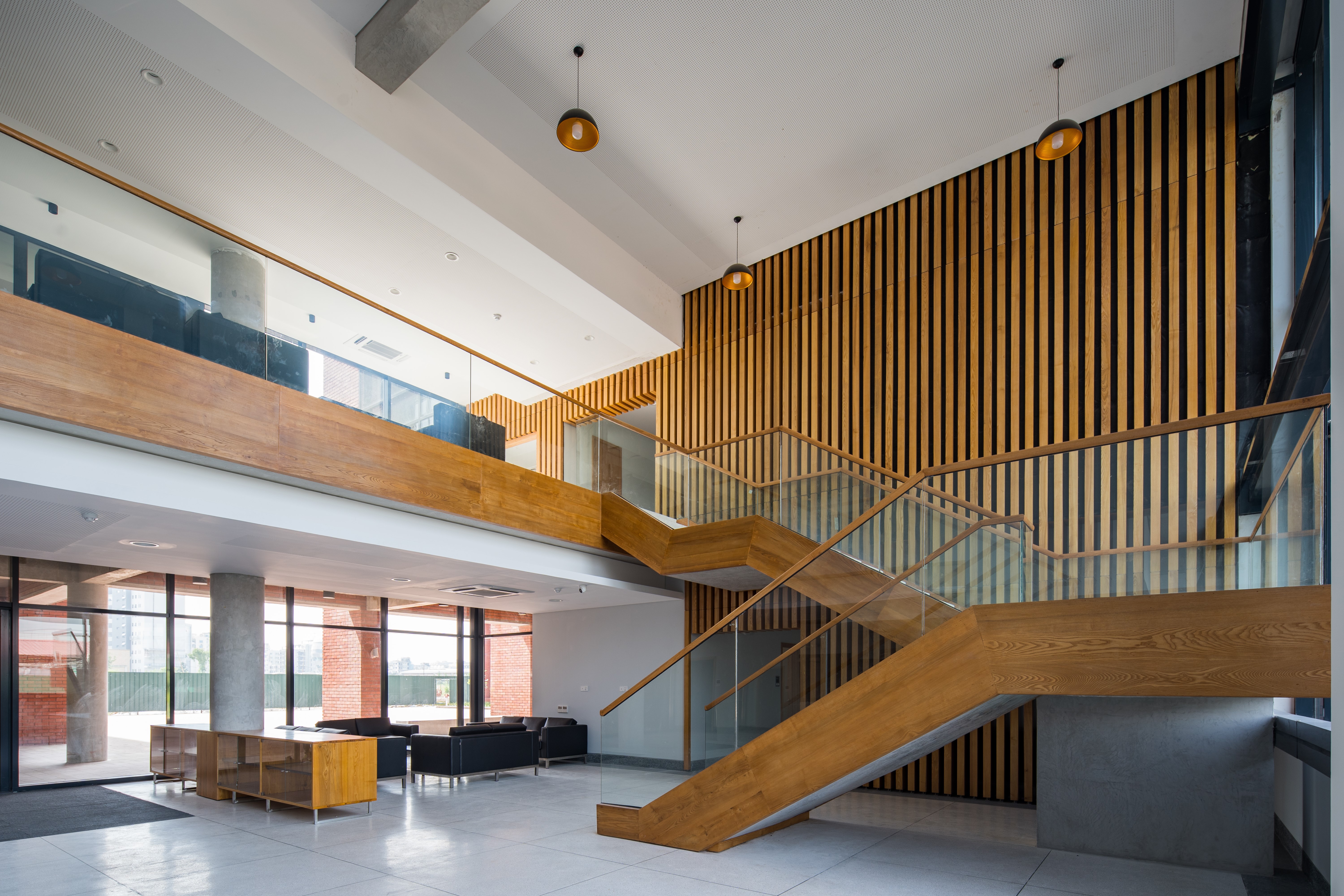
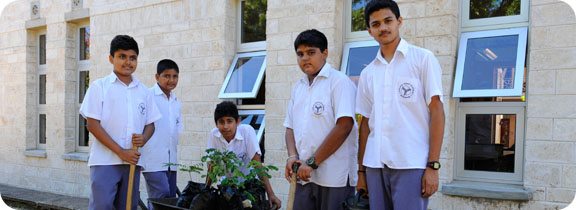
Community Service
Community service is a major part of the student experience at the Academy. Both the curriculum and student life incorporate aspects of community service.
Service opportunities extend the educational experience beyond the classroom and help our students learn about the real-world applications of their studies.
Through community projects with local organisations and groups, our students gain a sense of the connections between their education and the world around them. Students can participate in a variety of structured community initiatives and internships to learn about their place in the world and how they can make a difference to the lives of people in their community.
By partnering with local agencies of the Aga Khan Development Network (AKDN), students learn first-hand about the work of the organisation, and make tangible contributions to the agencies' projects.
In addition, community engagement gives our students an understanding of broad concepts such as human rights, dignity and autonomy, while emphasising the ethos of leaving the world a better place.
The Aga Khan Academy Mombasa used the hiatus due to the COVID-19 pandemic to rethink and enhance its service learning programme. Although a part of the International Baccalaureate (IB) curriculum, the Aga Khan Academies further developed and connected the IB's service learning programme with AKDN's approach to development. From being a standalone experience for residential students on Saturday mornings, which was voluntary for day students, the service learning programme has now been incorporated into the school's timetable, occurring on a weekly basis. Led by the service learning team, all Senior School Middle Years Programme (MYP) mentors have been inducted into the new model and all MYP students now participate in the programme. A handbook has also been developed and all service learning activities are explicitly linked to the curriculum to ensure the programme connects to classroom learning. At the culmination of their service initiatives, the MYP students showcase their projects to the Academy's community, and engage with the Academy's Primary Years Programme students as well as external community partners.
Examples of service projects:
Coast Rural Support Programme: Tree planting at Mtaa community reservoir. The reservoir was created as a community project. The outreach project involved planting 700 indigenous seedlings around the reservoir.
East African Quality in Early Learning: Creation of the fun reading day initiative to promote early grade reading. Inspired by the common 1:10 ratio of students to books in local public primary schools, the first project was to collect books to establish a library at Ng’ombeni Primary School. Through a book drive and other community projects, students collected books and catalogued and prepared them for library use.
Our Junior School and Diploma Programme (DP) students visited the Ng’ombeni Primary School for group reading sessions. This project was then handed over to upcoming DP students to continue.
Education for Marginalised Children in Kenya (EMACK): Student’s council training workshop at Longo Primary School. Sarrah Sheikh came to know the Longo Primary School through her summer placement service. She went on to assist EMACK in establishing student leadership bodies, beginning with Longo Primary School. Topics covered went from effective leadership to communication tools, and the difference between prefects and elected student leaders. Three weeks after this project, the Kenyan government announced the phasing out of the prefect system and the introduction of elected student councils.
“I realised that what we take for granted is like a miracle for other people.”
Madrasa Resource Centre: School painting project at Mpirani Nursery School. After visiting a school in disrepair, the DP students decided that a bright place was needed for the students to learn. They mobilised their fellow students to create bright learning materials and to repaint the school.
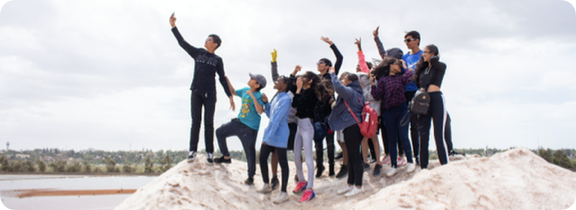
Diploma Programme
The Aga Khan Academy Maputo has received authorisation as an International Baccalaureate (IB) World School offering the IB Diploma Programme (DP). The programme is offered to students (aged 16–19) in the final two years of school.
The Diploma Programme is a demanding, pre-university-level course of studies. It is internationally recognised by over 2,000 universities worldwide.
The DP has a reputation for rigorous assessment of student achievement. Each student’s performance and levels of knowledge are examined internally by teachers according to set criteria. They are also assessed externally by independent examiners according to global standards applied to all IB schools.
Our students study all the subjects covered in a traditional, broad curriculum, including languages, social sciences, experimental sciences, mathematics and the arts. The DP also takes the curriculum a step further through three unique programmes:
- theory of knowledge
- creativity, activity, service
- extended essay.
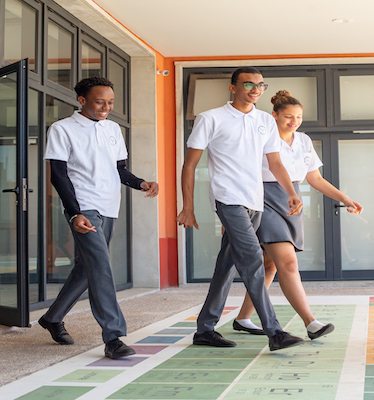 Theory of knowledge
Theory of knowledge
Theory of knowledge (TOK) is an interdisciplinary requirement unique to the International Baccalaureate Diploma Programme. It encourages students to reflect on the knowledge they gain both inside and outside the classroom.
One hundred hours of classroom time are dedicated to the TOK programme. We challenge our students to question the nature of knowledge across disciplines, to recognise biases and to analyse evidence using rational thought and argument. By making our students consider and appreciate different perspectives, TOK contributes towards a pluralistic outlook.
Creativity, activity, service
Creativity, activity, service (CAS) is an important component of the IB curriculum and is required for every DP student at the Academy. Our students participate actively in a variety of creative endeavours, physical activities and community service projects. They develop self-confidence, teamwork and leadership skills, and a sense of civil responsibility.
Students take part in sustainable projects that have real and lasting effects on the greater Maputo community. They develop strength of character and an understanding of their ability to bring about change.
The CAS programme is valued for its power to transform the lives not only of students but also the people they work with. It serves as a platform for interpersonal exchange, personal growth and greater understanding of the issues we face as a global community.
Extended essay
The extended essay requires students to pick a subject of their choice and research and develop it into a 4,000-word essay. Students may choose to investigate a subject from one of their higher-level courses more deeply. Or they can broaden their academic experience by researching a subject in a field they are not currently studying.
Through the extended essay, we introduce students to the kind of independent research and writing skills expected at the university level.
Career-related Programme
The Academy is a Candidate School* for the Career-related programme.
*Only schools authorised by the IB Organization can offer any of its four academic programmes: the Primary Years Programme (PYP), the Middle Years Programme (MYP), the Diploma Programme, or the Career-related Programme (CP). Candidate status gives no guarantee that authorisation will be granted. For further information about the IB and its programmes, visit www.ibo.org.
For further information on the IB Diploma Programme at the Academy, please see the admission requirements or contact us.
End of Academic Year 2015-16
The Academy announces the formal close of their international academic year on Friday 3rd June 2016. Parent Teacher Meetings (PTM’s) will be available on an individual appointment basis for all parents and families of current students from Thursday 2nd June. Junior School and Senior School secretaries are available to coordinate appointments. Boarding students will be departing with their families at the close of this Academy day. Meals and refreshments will be available in The Commons for all visitors.
Telangana Formation Day at The Academy
We are celebrating Telangana Formation Day at The Academy with a special menu and lunch for all, The Commons, Wednesday 1st June 2016. Academy staff, students and support teams (catering, landscaping, security and housekeeping) join the state of Telangana in celebrating this milestone event with a home cooked Hyderabadi meal. Parents and visitors to the campus are most welcome to attend.
Cultural Night – an extravaganza epitomising diversity
The Academy’s annual celebration of culture, diversity and pluralism took place at the amphitheatre on the evening of Saturday 3rd November, with close to 20 outstanding dance, music, poetry and dramatic performances by students and staff. The event was organised by five grade 11 students – Aafreen Prasla, Simran Patel, Nihan Khoja, Rahil Jiwani, and Iliyan Gowlani – as a CAS (Creativity, Activity, Service) project.
The Times of India: Civil society has to be driven by competence as well as ethics: Aga Khan
In light of the inauguration of The Aga Khan Academy, Hyderabad, The Times of India reporter Ranjan Roy interviews His Highness the Aga Khan and focuses on his unique and forward thinking vision, which includes ethics, free-market economics, and civil society as essential elements of a well-rounded education.
Student Exchange 2019: The Journey Begins
The Aga Khan Academies Student Exchange 2019 is fully underway! Over the next three months, 35 students from the Academies in Mombasa and Hyderabad will ‘exchange’ places, beginning a journey of self-disovery in a new environment.
Visit the photo gallery below to see how the exchange students spent their first week, or see the blog post here.
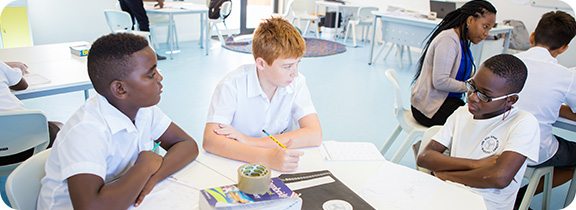
Primary Years Programme
The Aga Khan Academy Maputo has been accredited as an IB World School for the Primary Years Programme (Grades K–5).
Foundations for lifelong learning
The Primary Years Programme focuses on the development of the whole child. It is geared towards creating independent, confident and respectful learners.
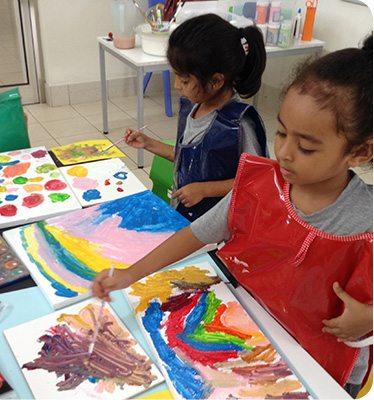 Our classroom curriculum and after-school activities address the children's social, physical, cultural and ethical development while giving them a strong foundation in all the major areas of knowledge.
Our classroom curriculum and after-school activities address the children's social, physical, cultural and ethical development while giving them a strong foundation in all the major areas of knowledge.
The curriculum consists of five essential elements:
- concepts
- knowledge
- skills
- attitude
- action.
The core subjects we cover include English language, mathematics, science and technology, and social studies. Our programme also includes a beginning computing course, physical education, music, art, French and Portuguese.
Students and teachers explore questions in all subject areas using an interactive, student-centred approach. The knowledge element of the curriculum is enhanced by six themes that are studied across the various subject disciplines. These are:
- who we are
- where we are in place and time
- how we express ourselves
- how the world works
- how we organise ourselves
- sharing the planet.
The PYP develops well-rounded students who are well versed in all areas of knowledge. They learn to be intellectually curious, principled, caring, open-minded, well balanced and reflective learners.
Please visit the Admission Requirements page or contact us to find out more about applying to the PYP at the Academy.
